|
5
January
|
The
World Health Organisation notifies member states that an outbreak of
pneumonia of unknown cause has been identified in Wuhan City, China.[2]
|

|
|
13–16
January
|
Asia-Pacific Parliamentary Forum
The
Australian Parliament hosts the 28th Annual meeting of the Asia-Pacific Parliamentary Forum (APPF), attended by some 350 delegates from
national parliaments across the region. The Australian Parliament is
represented by a delegation of 27 senators and members.[3]
The
APPF meets annually, providing ‘a platform to promote a stronger regional
identity and cooperation focusing on peace, freedom, democracy and
prosperity’.[4]
Speaker
of the House of Representatives, Tony Smith (Lib., Casey, Vic) is elected as President of the APPF. On
13 February, Speaker Smith makes a statement to the House of Representatives about the Forum,
presenting the conference Joint Communique, Chairman’s Statement and
Resolutions.[5]
The members for Menzies (Kevin Andrews (Lib., Vic.)) and Lalor (Joanne Ryan (ALP, Vic.)) also make statements.[6]
|
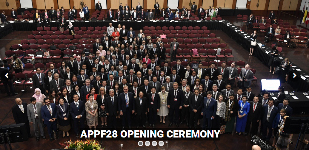
2020 APPF Opening Ceremony
Image source: APPF
|
|
19–21
January
|
Novel coronavirus
The
Australian Government Chief Medical Officer (CMO), Dr Brendan Murphy, announces that the Health Department ‘is aware of the cases of
novel coronavirus … from the region of Wuhan in China, and watching
developments very closely’.[7]
On
20 January, the Health Department activates its National Incident Room to
coordinate the health sector emergency response to COVID-19.[8]
On
21 January COVID-19 is declared a ‘disease of pandemic potential’ enabling
the issue of ‘enhanced biosecurity measures’.[9]
|
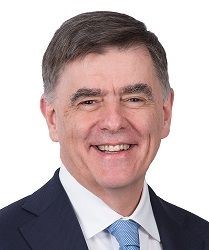
Dr Brendan Murphy
Image source: Department of
Health
|
|
20
January
|
Resignation: Senator Bernardi
Independent
SA Senator Cory Bernardi formally resigns from Parliament,[10] having announced his impending departure in November 2019.[11] Senator Bernardi will be replaced
by a Liberal as he was elected as a representative of that party in 2016.[12]
|

Cory Bernardi
Image source: Auspic
|
|
20
January
|
Canberra hailstorm
Auspic
photographer David Foote captures what would become an iconic image of Parliament
House following the brief but violent hailstorm that struck Canberra on this day.[13]
|

Image source: Auspic
|
|
25
January
|
First confirmed case of COVID-19 in Australia
Health
Minister Greg Hunt (Lib., Flinders, Vic) and Australian Government CMO Brendan Murphy announce that Victorian authorities have identified Australia’s
first confirmed case of COVID-19.[14]
(The Department of Health had issued its first public guidance on COVID-19
the previous day.)[15]
|

Greg Hunt
Image source: Auspic
|
|
30
January
|
The
World Health Organization declares the novel coronavirus outbreak a public health emergency
of international concern.[16]
|

|
|
1
February
|
Increasing restrictions on international travel begin
The
Government restricts access to foreign nationals who are in mainland China
and requires Australian citizens and permanent residents who have been in
mainland China to self-isolate for 14 days.[17]
Similar
restrictions are subsequently introduced for Iran (1 March),[18] South Korea (5 March),[19] and Italy (11 March).[20]
|

The Health Minister, Prime Minister and CMO at a Press
Conference on 5 March 2020
Image source:
Scott Morrison (Prime Minister), Twitter
|
|
2
February
|
Ministerial resignation
Minister
for Agriculture Bridget McKenzie (NP, Vic.) resigns from cabinet and from her position as Deputy Leader of
the Nationals for breaching the Ministerial Standards.[21]
The
resignation comes amid ongoing controversy about the governance and award of funding
under the Community Sport Infrastructure Program.[22]
Following
the release of a highly critical ANAO report, on 17 January 2020 Prime Minister Scott Morrison (Lib., Cook, NSW) asks the head of his department (Philip Gaetjens) to investigate whether there had been
a breach of ministerial standards.[23]
The Report is not released.[24]
However, Gaetjens finds that Senator McKenzie ‘acted within the remit of the
Guidelines’ but:
breached the Standards by failing
to declare her memberships of two organisations and … had an actual conflict
of interest when awarding funding to one of those organisations … which was
neither
declared to the Prime Minister
nor managed.[25]
On
5 February 2020, the Senate resolves to establish a Select Committee on Administration of Sports Grants to inquire into and report on the
administration and award of funding under the Community Sport Infrastructure
Grant Program’.[26]
The Committee tables an Interim Report in December 2020[27] and a Final Report in March 2021.[28]
|

Bridget
McKenzie
Image source: Auspic
|
|
3
February
|
Change of leadership: Australian Greens
Senator
Richard di Natale (Vic.) announces his resignation as Parliamentary Leader of the Australian
Greens, and his intention to resign from the Senate in the coming months.[29]
Senator
di Natale became leader of the Australian Greens in May 2015, following the
retirement of Christine Milne.
He
is succeeded as Leader (on 4 February 2020) by Adam Bandt, Member for Melbourne.
|

Adam Bandt
Image source: Auspic
|
|
3
February
|
Ministerial resignation
Minister
for Resources and Northern Australia Matt Canavan (LNP, Qld) offers his resignation[30] to party Leader Michael McCormack (NP, Riverina, NSW) to enable him to
support former Leader Barnaby Joyce (NP, New England, NSW) in the Nationals
upcoming party room leadership ballot.[31]
|
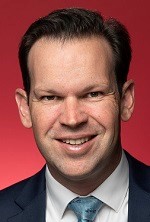
Matt Canavan
Image source: Auspic
|
|
4
February
|
Nationals leadership
Michael
McCormack is re-elected as Leader of the Nationals in a party room leadership
ballot triggered by the resignation of Senator Bridget McKenzie.[32] David Littleproud (LNP, Maranoa, Qld) is elected Deputy
Leader.
|
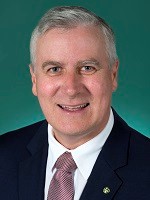
Michael McCormack
Image source: Auspic
|
|
4
February
|
‘Black Summer’: Australian bushfires
On
the first sitting day of the year, condolence motions are moved in the House of Representatives and the Senate on the devastation caused by the season’s bushfires.[33] The motions acknowledge the ‘loss
of 33 lives, the destruction of over 3,000 homes, the unimaginable loss of …
wildlife, and the devastating impact on regional economies’.
Present
during the debate are family members of Australian firefighters who died fighting the fires[34] and also the US Ambassador representing
the families of three American firefighters who also lost their lives.[35]
After
the speeches, both Houses adjourn as a mark of respect to the victims of the
bushfires. Debate on the motion continues in the Federation Chamber in the
following week.
|

Image source: Auspic
Watch the debate on the
condolence motion in the Senate
and in the
House of Representatives.
|
|
4
February
|
Procedural changes in the Senate
The
first sessions of the new sitting year see the trial of new procedures proposed by the Senate’s Procedure Committee and agreed by the Senate in 2019.[36] This includes a reduction in
speaking times to enable more senators to participate in debate.[37]
|

The Senate in session
Image
source: Auspic
|
|
6
February
|
Changes to the Ministry
Prime
Minister Morrison announces changes to his ministry following the resignation of two
Nationals ministers: Minister for Agriculture Bridget McKenzie and Minister
for Resources and Northern Australia Matt Canavan.[38]
Keith Pitt (LNP, Hinkler, Qld) is appointed to the position of
Minister for Resources, Water and Northern Australia; and David Littleproud
is given responsibility for Agriculture, a portfolio he had held from 20
December 2017 to 29 May 2019, becoming Minister for Agriculture, Drought and
Emergency Management. Minister Darren Chester’s (NP, Gippsland, Vic) portfolio of
Veterans Affairs is elevated to Cabinet rank. Andrew Gee (NP, Calare, NSW) and Kevin Hogan (NP, Page, NSW) also enter the ministry.
The
new ministers are sworn in on the same day.
|
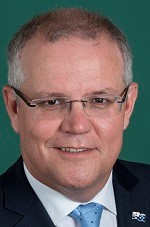
Scott Morrison
Image
source: Auspic
|
|
6
February
|
New Senator for South Australia
The
South Australian Parliament chooses Andrew McLachlan (Lib.) to fill the casual vacancy
arising from the resignation of Cory Bernardi. Senator McLachlan had resigned
from the SA Legislative Council to take up his seat in the Senate.[39]
A
casual vacancy arises when a member of the Senate dies, resigns their seat,
or is absent without leave or disqualified during their term.[40] Section 15 of the Australian Constitution provides that when such a vacancy
occurs a new senator is appointed by the relevant state or territory legislature.
Senator
McLachlan takes his seat in the Senate on 10 February 2020[41] and makes his first speech on 26 February.[42] He is the ‘second former President
of the Legislative Council to sit in the Senate’, the first being Sir Richard Baker.
|
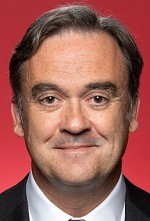
Andrew McLachlan
Image source: Auspic
Watch
Senator McLachlan oath of allegiance
Watch
Senator McLachlan’s first speech
|
|
10
February
|
Address by the President of the Republic of Indonesia
His
Excellency Mr Joko Widodo, President of the Republic of Indonesia addresses members and senators assembled in the House of
Representatives.[43]
The President is in Canberra on a state visit marking the 70th anniversary of
formal diplomatic relations between Australia and Indonesia.
During
the visit, Prime Minister Morrison and President Widodo ‘met for
the Indonesia-Australia Annual Leaders’ Meeting and held a Joint Ministerial
Meeting with other Australian and Indonesian Ministers’.[44]
|

Watch
the address by President Widodo
|
|
10
February
|
A new Deputy Speaker
Llew O’Brien, member for Wide Bay (LNP, Qld) is
elected as the Deputy Speaker of the House of Representatives. (The position
is vacant due to the elevation of Kevin Hogan to the outer Ministry on 6
February 2020.)[45]
Mr Hogan wins the position by ballot, receiving 75 votes and the other
nominee, Damian Drum (NP, Nicholls, Vic.) receiving 67.[46]
|
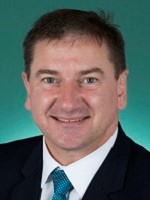
Llew O’Brien
Image source: Auspic
Watch
the election of the Deputy Speaker
|
|
11
February
|
Sydney Symphony Orchestra ‘pop-up’ performances
A string
quartet from the Sydney Symphony Orchestra performs in a number of locations
in Parliament House, an initiative of the Parliamentary Friends of Orchestral Music. On the following day, the Manager of
Opposition Business Tony Burke (ALP, Watson, NSW) rises in the House to commend the performances and ask if is possible for it to
‘happen more often’.[47]
|
|
|
12
February
|
Ministerial Statement: Closing the Gap
Prime
Minister Morrison delivers his annual
ministerial statement on Closing
the Gap.
Established in
2008, the Closing the Gap framework was intended to address inequality in child mortality, health, life expectancy, education and employment between Aboriginal and Torres Strait
Islander people and non-Indigenous Australians by the year 2030.[48]
The
Prime Minister informs the House that two of the seven targets are on track
to be met:
Nothing should diminish how
significant these gains are. However, the four expiring targets that were
supposed to be met by 2018 were not met: halving the gap in child mortality;
closing the gap in school attendance; halving the gap in child literacy and
numeracy; halving the gap in employment. The final target, closing the gap in
life expectancy within a generation, is not on track to be met by 2031. This
is a stark and sobering report that I have tabled.[49]
Debate
continues in the Federation Chamber.
This will be
the last report under the 2008 Framework. A Partnership on Closing the Gap, established in March 2019 between the
Commonwealth Government, state and territory governments, the Coalition of
Aboriginal and Torres Strait Islander Peak Organisations and the Australian
Local Government Association, developed a new Partnership Agreement which came into effect in July 2020.
The Agreement sets 16 new
targets and outcomes.
|

|
|
20
February
|
A new Royal Commission
The
Royal Commission into Natural Disaster Arrangements, also referred to as the Bushfires
Royal Commission, is established. Retired Air Chief Marshall Mark Binskin AC, the Hon Dr Annabelle Bennett AC SC, and Professor Andrew McIntosh are appointed Commissioners.
The
Report of the Royal Commission is received by the Government on 28
October 2020 and tabled in the Parliament on 9 November 2020.[50]
|

|
|
24
February
|
Statements on domestic and family violence
Prime Minister Morrison
and Opposition Leader Anthony Albanese (ALP, Grayndler, NSW) make statements,
on indulgence, on the murders of Hannah Clarke and her children[51] and ‘of so many others—mothers and children’.[52]
At the end of
the statements, as a mark of respect, all Members present stand in silence.
On 26 February,
a vigil is held at Parliament House in memory of Hannah Clarke and her
children.[53]
|
Watch
the statements on indulgence
|
|
26
February
|
Disaster Risk Reduction Framework
The
Minister for Agriculture, Drought and Emergency Management David Littleproud
makes a statement to the House on disaster risk reduction, acknowledging
‘the outstanding efforts of Australia's dedicated emergency services
personnel and volunteers’ and expressing thanks for volunteers and equipment
provided by other countries.[54]
The statement is referred to the Federation Chamber where debate continues on
3 and 4 March.
|
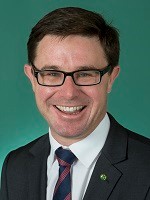
David Littleproud
Image
source: Auspic
Watch
the ministerial statement
|
|
26
February
|
Senate inquiry into domestic violence
The Senate refers to the Legal and Constitutional
Affairs References Committee an inquiry ‘on domestic violence with particular
regard to violence against women and their children’, with a reporting date
of 13 August 2020.[55]
The Committee determines that ‘conducting another lengthy, broad-ranging public
inquiry into domestic and family violence in Australia at this time would be
of limited value’.[56]
Its report, tabled in May 2020, reviews earlier reports, relevant
government responses and actions taken in relation to those recommendations.
The Committee’s decision to conclude its
inquiry early, without calling for submissions or hearing from expert
witnesses, is sharply criticised.[57]
On 30 May 2020, the Minister for
Families and Social Services, Senator Anne Ruston (Lib., SA), and the Minister for Women, Senator Marise Payne (Lib., NSW), announce that they have asked the House of Representatives Standing Committee on Social Policy and Legal
Affairs to
conduct an inquiry into family, domestic and sexual violence.[58] The Committee adopts the inquiry
on 4 June 2020[59] and concludes its public hearings in December 2020.[60]
|

|
|
27
February
|
Visit of the President of Israel
His Excellency Mr Reuven (Ruvi) Rivlin, President of the State of Israel, visits
Parliament House during his official visit to Australia (21–27 February). It
is his second visit to Australia, but his first as President.[61]
|

Prime Minister Morrison and Israeli President Reuvin
Rivlin and Parliament House
Image source: Scott
Morrison (Prime Minister), Twitter
|
|
27
February
|
The Prime Minister activates the Australian Health Sector Emergency Response plan for
Novel Coronavirus.[62]
|
|
|
27
February
|
Disorder in the Federation Chamber
The Deputy Speaker suspends and
subsequently adjourns the Federation Chamber due to repeated closure motions
moved during Constituency Statements.[63]
On 2 March (the next sitting day),
Speaker Tony Smith reports this to the House, affirming that the ‘repeated motions were an abuse of forms of the
House and were disorderly …. this reflects poorly on the House.’[64] Manager of Opposition Business Tony Burke responds, noting that the closure motions were
made in response to closure motions moved against opposition members in the
House.[65]
|

The
Federation Chamber
Image source: Auspic
|
|
1 March
|
Australia records its first death from
COVID-19.[66]
The first case of COVID-19 community
transmission in Australia is announced the following day.[67]
By 30 April 2020 there are 6,753 recorded
cases of COVID-19 in Australia, including 91 deaths. Some 64 per cent of
cases are acquired overseas.[68]
|
|
|
3
March
|
Australian Associated Press
The Prime Minister and Leader of the
Opposition both make statements on indulgence on the impending June closure of the
Australian Associated Press (AAP).[69]
Members hold up handwritten ‘thank you’ signs and applaud the journalists
present in the gallery.
This follows the announcement that AAP
Newswire would close after 85 years of supplying newswire content.[70] AAP newswire is subsequently sold
and relaunched as a not-for-profit company.[71]
In September it receives a $5 million grant under the Public Interest News
Gathering program.[72]
|
Watch
the statements on indulgence in the
House of Representatives
|
|
5
March
|
The Government commissions the National Coordination Mechanism to coordinate the whole-of-government
response to issues outside the direct health management of COVID-19.[73]
|
|
|
5
March
|
House Standing Committee on Environment
and Energy
The Chair of the Standing Committee on
the Environment and Energy presents to the House[74]
its report on its inquiry into vegetation and land management policy
relating to bushfires.[75]
The inquiry had commenced on 5 December 2019 following a referral by then
Minister for Water Resources, Drought, Rural Finance, Natural Disaster and
Emergency Management, David Littleproud. The Committee had announced in February that it would not proceed further with its
inquiry given the Government’s announcement of a Royal Commission into the summer
bushfires.[76]
|

|
|
8
March
|
President of the Senate announces he
will not contest the next election
President of the Senate Scott Ryan (Lib., Vic) announces that he will retire at the next Federal election.[77]
First elected to the Senate in 2007,
President Ryan was appointed to the ministry in 2014. Immediately prior to
his election in 2017 as President of the Senate, he held the offices of
Special Minister of State and Minister Assisting the Prime Minister for
Cabinet.
|
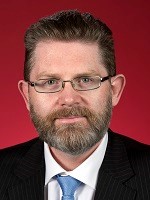
Scott Ryan
Image
source: Auspic
|
|
11
March
|
The Government announces a $2.4 billion health package to address COVID-19.[78]
|

Health Minister Hunt, Prime Minister Morrison and CMO
Brendan Murphy at a Press Conference at Parliament House, 11 March 2020
Image source: Scott
Morrison (Prime Minister), Twitter
|
|
11
March
|
The World Health Organisation declares COVID-19 a pandemic.[79]
|

|
|
12
March
|
The Government announces a $17.6 billion economic support package to ‘keep
Australians in jobs, keep businesses in business and support households and
the Australian economy as the world deals with the significant challenges
posed by the spread of the coronavirus’.[80]
|
|
|
12
March
|
Parliamentary delegations postponed
The Speaker of the House of
Representatives and President of the Senate announce that ‘due to the
evolving situation for international travel, several outgoing parliamentary
delegations scheduled for March and April have been postponed’.[81]
|
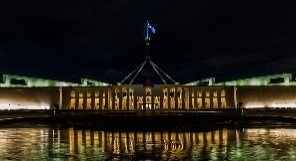
Parliament House
Image source: Auspic
|
|
13–23
March
|
Media reports parliamentarians testing
positive for coronavirus
On 13 March, Minister for Home Affairs Peter Dutton (LNP, Dickson, Qld) confirms he has
coronavirus.[82]
Senator Susan McDonald (LNP, Qld) announces on 16 March that
she too has tested positive to coronavirus, as does[83] Senator Andrew Bragg (Lib., NSW) on
the following day[84]
and Senator Rex Patrick (Ind., SA) several days later.[85]
|
|
|
13
March
|
The Prime Minister, Premiers and Chief
Ministers resolve to form a ‘national cabinet to deal with the national
response to the coronavirus’.[86]
The first meeting of the National Cabinet takes place on 15 March.[87]
|
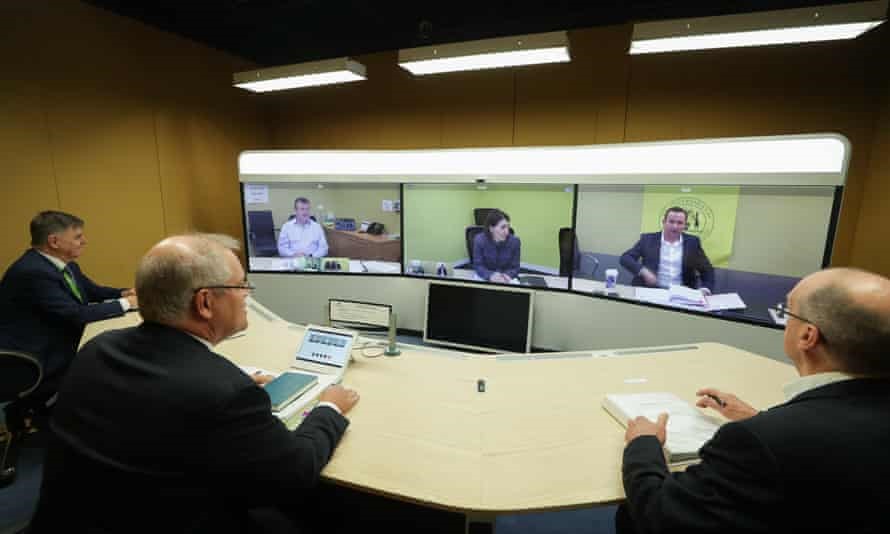
National Cabinet, meeting remotely.
Image source: Alex Ellinghausen/Sydney
Morning Herald/Pool
|
|
15
March onwards
|
Tasmania, Northern Territory, South
Australia, Western Australia and Queensland announce border restrictions.[88]
A range of restrictions are put in place
progressively to curtail people’s movements and limit their mixing with
people from outside their households.[89]
People arriving in Australia from overseas must self-isolate for 14 days. Non-essential
services and many schools close.
|
|
|
16
March
|
Changes to the operations of Parliament
House
The Presiding Officers announce changes to the operation of Parliament House to reduce
‘the risk of transmission while enabling the essential work of Parliament to
proceed’. This includes closure of public galleries and cancellation of
events and school tours during the upcoming sitting on 23 March. Committee
proceedings will also not be open to the public.[90]
|

|
|
18
March
|
In response to the coronavirus outbreak
in Australia, the Governor-General declares that ‘a human biosecurity emergency exists’.[91] ‘The declaration gives the
Minister for Health expansive powers to issue directions and set requirements
in order to combat the outbreak. This is the first time these powers
under the Biosecurity Act have been used.’[92]
In the following weeks, five
determinations are made by the Health Minister:[93] banning international cruise ships from entering Australian ports;[94] prohibiting overseas travel by Australian citizens and permanent
residents;[95]
restricting access to remote communities;[96]
requiring the closure of most retail outlets in Australian international
airport terminals;[97]
prohibiting price gouging of personal protection equipment, hand
sanitiser and alcohol wipes;[98]
and regulating COVIDSafe app data prior to the passage of the Privacy Amendment (Public Health Contact
Information) Act 2020.[99]
|

His Excellency General the Honourable David Hurley
AC DSC (Retd)
Image source: Governor-General's
biography
|
|
20
March
|
The Federal Budget is postposed
Prime Minister Morrison and Treasurer Josh Frydenberg (Lib., Kooyong, Vic) announce that the Federal Budget will be postponed until October.
The Prime Minister says:
It was also agreed today [at a
meeting of National Cabinet] that putting Budgets together at this time with
the great uncertainty that exists is not something that any Commonwealth or
State Government should be doing. As a result, we've already decided that we
will not be now handing down a Budget until the first Tuesday in October, on
the 6th of October. …. All other states and territories will be working to
similar timetables. … And as a result, we will be putting in place the
necessary measures with the support of the Parliament on supply and other
continuances to ensure the proper functioning of government services and the
continuation of vital programs.[100]
|

Josh Frydenberg
image source: Auspic
|
|
20
March
|
Australia closes its borders to ‘all non-citizens and non-residents’
with effect from 9pm AEDT Friday 20 March.[101]
|
|
|
22
March
|
The Government announces a second package of measures as part of its economic response
to the coronavirus, amounting to some $66 billion.[102]
|
|
|
23
March
|
Parliament meets to debate the
Government’s COVID-19 response package
As per the Presiding Officers’ statement
of 16 March, special arrangements are put in place in both chambers for the
single day sitting on 23 March. Seating arrangements are adjusted to meet
COVID-19 requirements for social distancing. Pairing arrangements are put in
place so that only 37 senators and 90 members are present in Parliament
House, with numbers in the Chambers kept to a minimum. Other minor changes
are made to procedures.[103]
The business program in both the House
and Senate are ‘swept aside so that each House could focus on the
Commonwealth Government’s economic response to the coronavirus/COVID-19
pandemic’.[104] However,
before debate on the legislation begins, Prime Minister Morrison
delivers a ministerial statement on COVID-19.[105]
The Government’s coronavirus economic measures
are put before the house in a package of bills which pass the House shortly
after 5pm, were reported in the Senate around 6.40pm, and passed some 3 and a
half hours later’.[106]
The package of bills includes temporary measures to avoid unnecessary insolvencies and bankruptcies due to coronavirus’.[107]
The Parliament also passes three supply
bills to provide resources for government services until the October Budget.
The bills receive Royal Assent the
following day.[108]
At the end of the day’s business,
the House of Representatives resolves to adjourn ‘until a date and hour to be fixed by the
Speaker’.[109]
It also agrees a new sitting calendar, with the next sittings scheduled for
11 August 2020.[110]
In arguing for an extended adjournment, the Leader of the House Christian Porter (Lib., Pearce, WA) states:
some risk attaches to the
operation of parliament, particularly during what is anticipated to be the
peak point in the transmission of the coronavirus. Obviously, we come from
all points in Australia. …. [S]ome risk attaches to flying in multiple
members from every corner in Australia, and some attention to that fact has
been had in redesigning the sitting calendar that is now before the House.[111]
The Senate also resolves to adjourn until 11 August 2020. However, it ensured
flexibility in further changes to its schedule and program by resolving that
‘the President shall alter the day and time of the next meeting of the
Senate’ at the request or agreement of the Government and the Opposition.[112]
The long adjournment attracts criticism and sparks discussion of the potential for Parliament to meet virtually.[113]
|

Social distancing in the House of Representatives, 23
March 2020
Image source: Auspic
Watch the statements by the President
of the Senate and the Speaker of the House.
Watch the Prime
Minister’s statement on COVID-19, and
the Leader
of the Opposition’s response.
|
|
24
March
|
The Government prohibits overseas travel by Australian citizens and permanent
residents.[114]
|
|
|
25
March
|
Parliament House closes to the public
Parliament House closes to the public
indefinitely from 5 pm to meet the enhanced and additional social distancing
measures announced by the Prime Minister the previous day.[115]
|

Parliament House foyer
Image source: Auspic
|
|
25
March
|
The Prime Minister announces a new National
COVID-19 Coordination Commission[116]—later renamed the National COVID-19
Commission Advisory Board—to provide a ‘business perspective to Government on
Australia’s economic recovery.’[117]
|
|
|
27
March
|
National Cabinet agrees that all
travellers arriving in Australia will be required to undertake 14 days
mandatory isolation at designated facilities, not in their homes.[118]
Schools transition to home-based
learning.
|
|
|
29
March
|
National Cabinet agrees to a six month
moratorium on COVID-19 related commercial and rental evictions.[119] The Government announces a package to boost mental health, telehealth, Medicare,
family violence prevention, and emergency food relief services.[120]
|
|
|
30
March
|
The Government announces its third round
of financial assistance—the JobKeeper wage subsidy payments to be paid
through the Australian Taxation Office.[121]
|
|
|
31
March
|
The Government announces a major partnership with private hospitals[122] to ‘ensure the full resources of [the] health
system, are ready and focussed on treating patients as required, through the
coronavirus pandemic’.[123]
|
|
|
2
April
|
The Government announces new funding arrangements for the early childhood sector
in response to the impact of COVID-19 on enrolments and attendance.[124]
|
|
|
8
April
|
Parliament re-convenes for a single-day
sitting
Parliamentarians return to Canberra for
a special sitting to debate the second tranche of legislation dealing with
the Government’s COVID-19 economic measures.
As they did for the 23 March sittings,
and in consultation with relevant health authorities, both Chambers implement
extended pairing and social distancing arrangements and variations to
procedure.[125]
Fifty-nine members of the House of Representatives and 25 senators are in
attendance.
The Prime Minister makes a ministerial statement on COVID-19, outlining Government
actions to reduce the health and economic aspects of the pandemic, and
thanking groups and individuals for their contributions.[126] The Leader of the Opposition responds.[127]
Both subsequently make statements on indulgence on Easter, urging Australians
to not ‘go away; stay home, only go out for what you need’.[128]
Four government bills are passed,
without amendment, relating to the Job Keeper program which the Government
announced on 30 March.
The House of
Representatives resolves to adjourn ‘until a date and hour to be fixed
by the Speaker’.[129]
The Senate resolves to adjourn until 11 August 2020, but again enables the
President ‘alter the day and time of the next meeting of the Senate’ at the
request or agreement of the Government and the Opposition’. A motion by the crossbench
to reinstate sittings in May and June is not successful.[130]
|

Image source: Auspic
|
|
8
April
|
The Senate establishes a COVID-19 Select
Committee
The
Senate resolves to establish a Select Committee ‘to inquire into the government’s
response to the COVID-19 pandemic’.[131]
Committee Chair Katy Gallagher (ALP, ACT) says:
This committee, in its early
stages particularly, will provide the country with the scrutiny that's needed
on the government’s response, in the absence of the parliament …. this select
committee will be an important vehicle for examining the government's
response and providing the transparency, accountability and scrutiny that the
people of Australia deserve. Indeed, this is the role that this Senate
importantly plays across the political system.[132]
The
Committee tables its First Interim Report in December 2020[133] and its Second Interim Report in February 2021.[134]
|
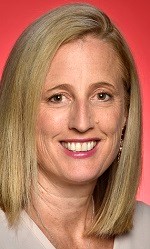
Katy Gallagher, Chair of the COVID-19 Select
Committee
Image
source: Auspic
|
|
26
April
|
The Government releases the COVIDSafe app intended
to facilitate contact tracing.[135]
|

|
|
28
April
|
Services Australia satellite processing centre at Parliament
House
Like
their public service counterparts,[136]
parliamentary service staff volunteer for secondment to Services Australia (SA) to assist the many Australians
needing Government support. A satellite Job Seeker processing centre is
established in Parliament House committee rooms, helping to enable SA to
‘rapidly expand its capability while maintaining physical distancing requirements’
for the workforce.[137]
In
all, 63 parliamentary service officers (62 from the Department of
Parliamentary Services and one from the Department of the Senate) are
deployed to SA.[138]
The
satellite centre operates at Parliament House until August 2020.
|

|
|
30
April
|
Resignation of the Hon Dr Mike Kelly AM
Member
for Eden Monaro, Dr Mike Kelly (ALP, NSW), announces his retirement due to longstanding health issues
associated with past military service.[139]
He entered the House of Representatives as member for Eden Monaro in 2007.
Defeated at the 2013 general election by Dr Peter Hendy, he was re-elected as the member for Eden Monaro in 2016
and 2019. Dr Kelly served as Minister for Defence Materiel in 2013, and as
Parliamentary Secretary in various portfolios between 2007 and 2013.
As
the House is not sitting at the time of his resignation, Dr Kelly’s
valedictory remarks are tabled by the Speaker, Tony Smith, and incorporated in
Hansard.[140]
On
25 May, the Speaker announces 4 July 2020 as the date of the by-election,[141] issuing the writ on 28 May.[142]
|
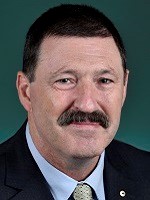
Mike Kelly
Image source: Auspic
|
|
8
May
|
The Prime Minister announces that National Cabinet has agreed a three step framework for easing COVID-19 related
restrictions due to a steady decline in case numbers.[143] Lockdown restrictions
progressively ease.
|

|
|
8
May
|
Anniversary of the first broadcast of
the Commonwealth Parliament
8
May 2020 is the 75th anniversary of the first radio broadcast[144] of the proceedings of the Australian
Parliament, featuring the Prime Minister Ben Chifley announcing the end of the war in Europe.[145]
Regular broadcasts commenced the following year.[146]
Senate
proceedings are televised for the first time in August 1990[147] and the House of Representatives
in March 1991.[148]
|

Image source: ‘44 A Side’, by Roadside Guitars
|
|
11
May
|
Presiding Officers’ statement, ‘Temporary
and precautionary changes to Parliament House operations’
The
Presiding Officers issue a statement setting out arrangements for the May sittings of
Parliament. Parliament House remains closed to the public and to events.
External departments and agencies are asked to minimise attendance of public
servants ‘unless on essential business’, and building occupants are asked to
‘avoid non-essential attendance’ of visitors and staff.[149]
|
|
|
12–14
May
|
Parliament resumes
Parliament
meets for a further special sitting on 12–14 May, addressing a broad range of
matters which had been deferred due to the pandemic.
Once
again, extended pairing and procedural arrangements are in place to ensure
COVID-19 social distancing requirements are met. 130 of 151 members and 70 of
76 senators attend during the week, with ‘additional seating … provided
around the perimeter of the chamber to accommodate the larger numbers’.[150]
Among
the bills debated is one dealing with privacy measures for the Government’s
COVID-19 app—the Privacy Amendment (Public Health Contact
Information) Bill 2020.
On the last sitting day, the houses
resolve to return for a seven-day sitting in June, and to change the calendar
to include two weeks of Budget estimates hearings in October.
|
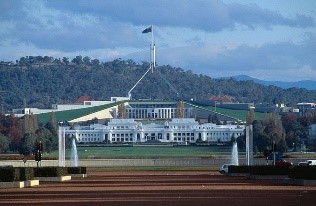
Image source: National Archives of Australia
|
|
12
May
|
The state of the economy
With
the Budget deferred until October, Treasurer Josh Frydenberg makes a ministerial statement on the economy, noting the global and
domestic impact of the pandemic and the various economic measures put in
place by the Government.[151]
Speaking in response, the Shadow Treasurer Jim Chalmers (ALP, Rankin, Qld) expresses concern
with the Government’s response and emphasises the need for an economic plan
‘for when the economy doesn’t snap back’.[152]
|
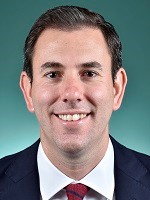
Jim Chalmers
Image source: Auspic
|
|
12–13
May
|
Condolences for Victorian police officers
Motions
in the House of Representatives and the Senate pay tribute to Victorian police officers Leading Senior
Constable Lynette Taylor, Senior Constable Kevin King, Constable Glen
Humphris and Constable Joshua Prestney.[153]
The four officers were killed by a truck after pulling over a car on a
freeway on 22 April 2020, in the largest loss of police life in one incident
in the state’s history.[154]
|
|
|
13
May
|
Ministerial Statement: COVID-19
The
Minister for Health, Greg Hunt, makes a statement in the House on Australia’s COVID-19 health response,
noting that as of that morning, Australia has 6,970 confirmed cases and 98
deaths, thanking health workers and the community, and outlining measures in
place to contain the spread, develop vaccines and progressively remove restrictions.[155] He states:
We've reduced our rate of
increase in new cases from 25 to 30 per cent per day at the peak of the
growth in cases at the end of March to much less than 0.5 per cent a day now.
The rate of increase in new cases has been below 0.5 per cent for 23
consecutive days.[156]
|

Greg Hunt
Image source: Auspic
|
|
5
June
|
Presiding Officers’ statement: Changes
to the Operations of Parliament House
The
Presiding Officers announce changes to the operation of Parliament House, lifting
access restrictions for some categories of passholders, though access is
conditional on it being ‘strictly necessary … for specific meetings with
parliamentarians that have been arranged prior to coming to the building’.
Parliament House remains closed to the public, and event spaces remain closed
to bookings.[157]
|

|
|
10–18
June
|
Parliamentary sittings
The Parliament meets in its first full
sitting fortnight since March.
Parliament House is closed to the public
for the sitting period, and the viewing galleries remain closed. COVID-19
related procedural and physical adjustments continue in both Houses; however,
the great majority of senators and members attend across the fortnight’s
sittings—though limitations apply to the number who can be present in the
chambers at one time.
|

Social distancing arrangements in the House of
Representatives
Image source: Auspic
|
|
10
June
|
Senator crosses the floor
Senator Concetta Fierravanti-Wells (Lib., NSW) crosses the floor to vote for a motion by Senator Rex Patrick to establish an inquiry into the future
development of Australia’s relationship with the People’s Republic of China.
The motion is defeated.[158]
|
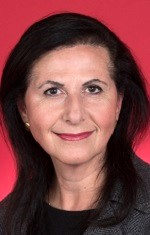
Concetta Fierravanti-Wells Image source: Auspic
|
|
11
June
|
Inquiry into the destruction of ancient
rock shelters at Juukan Gorge (WA)
The Senate refers to the Joint Standing Committee on Northern Australia an inquiry into the destruction in May 2020 of ‘46,000 year old
caves at the Juukan Gorge in the Pilbara region of Western Australia’ by
mining company Rio Tinto.[159]
The area is one of great cultural significance to the Puutu Kunti Kurrama and
Pinikura (PKKP) people of Western Australia, and of great ethnographic and
archaeological importance. The terms of reference task the committee with
investigating the ‘immediate causes and consequences, and its wider
ramifications for the protection of Indigenous heritage’.[160] The Committee tables an Interim Report in December 2020.
|
|
|
11
June 2020
|
50 Years of Senate Committees
The
Senate marks the 50th anniversary of the Senate committee system ‘that
forever changed the role and work of senators and the Senate and the
parliament itself’.[161]
Speaking in the chamber, President Scott Ryan says:
Through its committee work the
Senate became a force for inquiry and scrutiny in a way that was scarcely
imagined in 1970—dare I say even in 1901—and in ways that reinforce the
uniqueness of this chamber across the Westminster world.
He
informs the Chamber that ‘Senate committees had produced around 120 reports
in the 69 years prior to the change and more than 5,500 reports in the 50
years since’.[162]
|
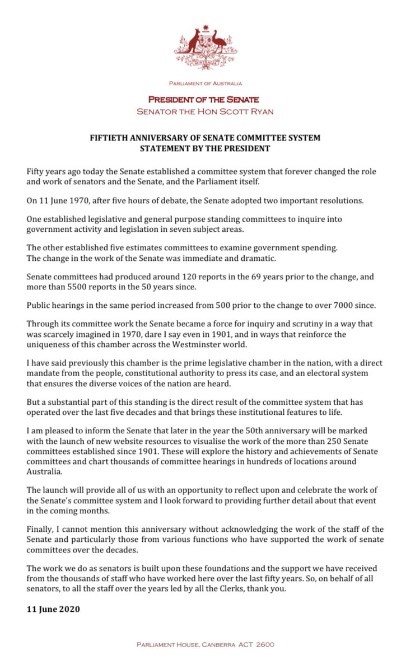
Statement by the President on 50th anniversary of the
Senate committee system
|
|
16
June
|
Death of former senator John Madigan
On
25 July, the President of the Senate informs the Senate of the death on 16
June of former Senator John Madigan.[163]
Madigan, who served in the Senate from 2011 to 2016, was the first
parliamentarian in almost forty years to represent the Democratic Labor
Party.[164]
A condolence motion is delayed until 8 December to enable
Mr Madigan’s family to attend once travel restrictions are lifted.[165]
|
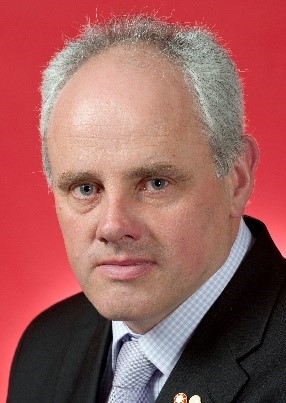
John Madigan
Image source: Auspic
|
|
20
June onwards
|
Victoria
begins to reinstate restrictions as new COVID outbreaks are recorded in a
‘second wave’ of infection.
As
at 3:00pm, a total of 7,436 cases of COVID-19 have been reported in Australia since the pandemic began, including
102 deaths.[166] By
31 July, this has risen to 16,905 reported cases,[167] of which over 10,500 are in
Victoria.[168]
|
|
|
25
June
|
The
Government announces a support package for the arts and entertainment sector
which generally was not eligible for JobKeeper.[169]
|
|
|
2
July
|
Parliament House to re-open to the pubic
The
Speaker and the President of the Senate announce:
following advice from relevant
health officials and the recent easing of restrictions announced by the ACT
Government to allow public gatherings up to a maximum of 100 people, APH will
reopen to the public on 4 July 2020. School visits will recommence on 20 July.[170]
|
|
|
3
July
|
Northern Territory loses a seat in the House of Representatives
As
foreshadowed in a Parliamentary Library research paper,[171] the Australian Electoral
Commissioner determines a reduced entitlement for the Northern
Territory to a single seat based on the most recent official population
figures.[172]
The
last time that the Electoral Commissioner determined the Northern Territory
was to lose a seat, the Parliament passed legislation that resulted in the
determination being set aside.[173]
A
private bill introduced by Northern
Territory Senator Malarndirri McCarthy (ALP) on 11 June seeks to amend the Commonwealth Electoral
Act 1918to provide for a ‘minimum of two seats for the
Northern Territory in the House of Representatives’.[174] The bill was referred to the Joint Standing Committee on Electoral Matters (JSCEM) for inquiry on 12 June 2020. The deliberations
of the JSCEM inquiry[175] inform the Government’s Electoral Amendment (Territory Representation) Bill, which passes the Parliament on 9 December.
|
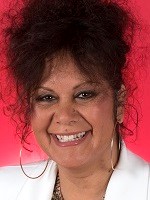
Malarndirri McCarthy
Image source: Auspic
|
|
4
July
|
Eden-Monaro by-election
Due
to the COVID-19 pandemic, special measures are put in place by the AEC at
polling places and through the entire by-election process.[176]
Unusually,
the by-election is held during the NSW school holidays to enable the facilities
to be sanitized after voting and counting at school polling booths before
students return.[177]
There
is a marked increase in pre-poll and postal votes compared to the rates in
2019 general election.[178]
The
poll is declared on 20 July,[179]
with former Bega-Shire Mayor Kristy McBain (ALP) defeating Liberal candidate Fiona Kotvojs by 735 votes. She is the first woman to
represent Eden-Monaro.
Ms
Bain is sworn into the House of Representatives on 24 August 2020, and
delivers her first speech on 20 August 2020.[180]
|

Kristy McBain
Image source: Auspic
Watch Kristy McBain’s affirmation
Watch Kristy McBain’s first speech in Parliament.
|
|
5
July
|
Finance Minister announces retirement
Senator
Mathias Cormann (Lib., WA) announces his intention to leave Parliament by the year’s end.[181]
Senator
Cormann was appointed Minister for Finance in September 2013, and served in this
position in the Abbott, Turnbull and Morrison cabinets.
He
subsequently resigns from the Ministry on 30 October 2020, and from the
Senate on 6 November 2020. Senator Simon Birmingham (Lib., SA) is sworn in as Minister for Finance on 30 October, also assuming the
role of Leader of the Government in the Senate.[182]
After
his retirement, and with the support of the Government,[183] Mr Cormann commences a campaign
to become the next head of the Organisation for
Economic Co-Operation (OECD)—he is one of 10 nominees for the position.[184]
|
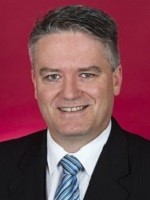
Mathias Cormann
Image source: Auspic
|
|
6
July–2 August
|
On
6 July the Victorian and NSW governments, jointly close their shared border
following a large increase in COVID-19 cases in Melbourne linked to Victoria’s
hotel quarantine program.[185]
(A judicial inquiry into the hotel quarantine program was established by the Victorian Government on 2 July.)[186]
On
7 July, Stage 3 ‘stay at home’ restrictions are reinstated across Melbourne
and Mitchell shires in Victoria.[187]
With
international arrivals to Victoria already suspended (2 July), on 10 July
National Cabinet agrees to a national review of hotel quarantine arrangements and a cap
on international arrivals.[188]
On
2 August, Victoria enters a State of Disaster and moves to Stage 4
restrictions.[189]
The total number of cases recorded in Victoria is 11,557—of which 6322 are active—including 123 recorded deaths.[190]
|
|
|
18
July
|
Parliamentary sittings rescheduled
Following
advice from the Chief Medical Officer, Prime Minister Morrison announces he is requesting that the sittings of Parliament
scheduled for the first two weeks of August not proceed. He states:
The Government cannot ignore the
risk to parliamentarians, their staff, the staff within the Parliament, and
the broader community of the ACT that holding a parliamentary sitting would
create.[191]
Speaker
Tony Smith notifies Members that he has set Monday, 24 August as the time for
the next meeting of the House.[192]
Following consultation with the Leaders of the Government and Opposition in
the Senate, and with other parties and Senators, President Scott Ryan
notifies all senators that the scheduled sittings will not take place.[193] This is the ‘first time scheduled
sittings have been set aside in this way’.[194]
A working group is established by the Speaker and the President to establish
protocols to enable the Parliament to meet safely.[195]
|

Image source: Auspic
|
|
6
August
|
Quarantine requirements for parliamentarians
The
Commonwealth’s Acting Chief Medical Officer advises the Prime Minister that
members and senators travelling to the ACT from Victoria pose ‘a significant
risk’ to the Canberra community, and should be required to undertake strict quarantine
for 14 days.[196]
The
Presiding Officers issue a statement enclosing the health advice and recommending senators
and members seek ‘further advice regarding attendance and travel from their
Party Whips and from the Independent Parliamentary Expenses Authority and the
Department of Finance’.[197]
|
|
|
7
August
|
Routine of Business—rules for remote participation in Senate
proceedings
At
the request of the Manager of Opposition Business in the Senate Katy
Gallagher, the President of the Senate refers to the Senate Standing Committee on Procedure the development of rules to enable
remote participation of senators where they are unable to attend sittings due
to the pandemic.[198]
The
Committee presents its Report on 21 August recommending rules for remote participation in
Senate proceedings ‘while they are prevented from physically attending the
Senate because of travel restrictions, quarantine requirements or personal
health advice.’[199]
The committee considers:
that the rules for remote
participation of senators should be developed on the basis of an overarching
principle that the proceedings of the Senate are to be managed in the Senate
itself. This reflects a view about the primacy of attendance in the
Parliament as the key means for senators to engage in and determine its work.
The one exception to this principle recommended by the committee is that
senators participating remotely should be able to move amendments and
requests for amendments in committee of the whole, to ensure that all parties
represented in the Senate can have their legislative proposals considered and
determined.[200]
|

|
|
17
August
|
Presiding Officers’ statement regarding
the upcoming sittings.
The
Presiding Officers issue a joint statement setting out
arrangements for the upcoming sittings. This follows ‘consultations between
the Presiding Officers, Parliamentary Departments and relevant Commonwealth
officers and agencies including the Acting Chief Medical Officer and ACT
Health’. The building will be closed to the public and for events during the
sittings. In addition to other access restrictions and social
distancing/hygiene requirements, the wearing of masks is encouraged.
Parliamentarians and travelling staff are ‘strongly advised to remain in the
ACT for the weekend of August 29–30 rather than travel away and return’ due
to the risk of community transmission. And, those travelling from Greater
Sydney and Newcastle are asked to restrict their movements in the ACT.[201]
|

|
|
18
August
|
Banks’ Florilegium exhibition
To
mark the 250th
anniversary of
HMB Endeavour’s voyage along Australia’s east coast, Parliament House
hosts an exhibition celebrating Sir Joseph Banks’ Florilegium—a portfolio of 743 engravings, which
illustrate the plant life seen on the voyage.
The
Endeavour’s voyage was a combined Royal Navy and Royal Society
expedition to the South Pacific from 1768 to 1771. Banks led a private
scientific party which collected over 30,000 specimens, representing some
3,600 species, 1,300 of which were then unknown to science. Banks did not
publish the Florilegium during his lifetime; and the first full colour
edition was published between 1980 and 1990. The Parliament House Art
Collection holds parts 1–15 of the Florilegium, consisting of 337 prints of
flora gathered on the east coast of Australia in 1770.
|
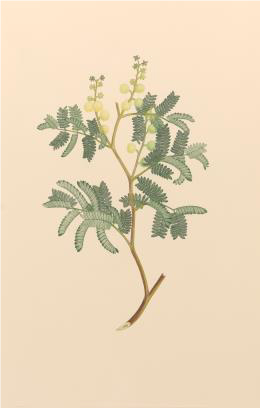
Acacia terminalis (Leguminosae) Plate 95.
Line engraving by Frederick
Polydore Nodder after Sydney Parkinson and Nodder himself. Parliament Art
Collections
|
|
21
August
|
Presiding Officers’ statement on the wearing of masks
Noting
the increase in rates of community transmission of COVID-19, the Presiding
Officers issue a statement recommending, ‘out of an abundance of
caution’, the wearing of masks in the common areas of Parliament House during
the upcoming sittings.[202]
|
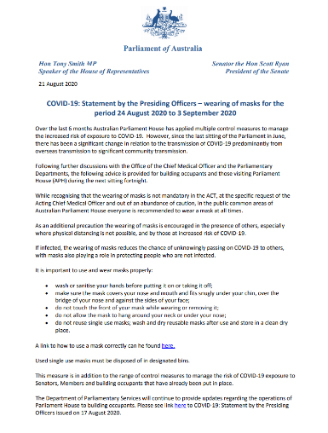
|
|
24
August
|
Parliament via video link
The
August sittings see a revolution in parliamentary procedure with senators and
members who are unable to attend their respective chamber for COVID related
reasons are able to participate in debate via video link.
The
Senate adopts the rules for remote participation recommended by its Procedure
Committee in its Report of 21 August.[203]
The
House of Representatives also agrees to new procedures[204] by resolution,[205]
following an agreement struck between the Leader of the House and the Manager
of Opposition Business.[206]
Speaking to the agreement, the Leader of
Opposition Business Tony
Burke says:
It’s important to note that what
the Leader of the House and I have agreed on is not a virtual parliament. The
parliament is meeting and it is meeting here. [W]hen members want to make a
contribution to a debate or discussion in different ways, they’re able to do
so via video link. But for all other purposes you have to be here.[207]
Remote
participation in committee proceedings for members and witnesses has been
occurring for years. However, this is the first time senators and members
have been able to participate in parliamentary proceedings without being
physically present.[208]
Member for Corio Richard Marles (ALP, Victoria) and Queensland Senator Larissa Waters (AG) are the first parliamentarians to
participate in debate via video link in their respective chambers.
A
total of 62 senators and 109 members attend in person across the sitting
period.[209]
|
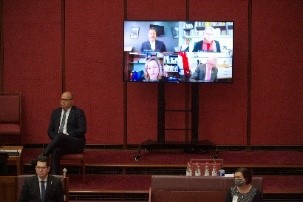
Senators participating in proceedings via video
link.
Image source: Auspic
|
|
24
August
|
Senate sittings and COVID-19
Senate
President Scott Ryan makes a statement to the Chamber on the impact of
COVID-19 on the Senate’s sittings. Referring to his 18 July statement,[210] he observes that this was ‘the first time scheduled sittings have
been set aside in this way’.[211]
The President speaks about the ‘risk of executive-imposed travel restrictions
and quarantine requirements constraining the ability of senators to undertake
their parliamentary duties’:[212]
The right of those elected to
attend and participate in parliament is an ancient one. For good reason the
ability of others, including the executive, to restrict this has always been
limited. … The ability to scrutinise the executive and participate in
legislative activity is unarguably even more critical in times of crisis due
to the extraordinary powers being delegated, granted and exercised by
officials and the executive.
In the current pandemic, an
important principle is at stake: notably, the ability of the executive or its
officers, no matter the jurisdiction, to control attendance at parliament or
constrain the work of members of parliament when it's directly related to
parliamentary proceedings. …
Unilateral action by
executives—whether Commonwealth, state or territory—that impede the
performance of Commonwealth parliamentary functions are problematic from a
constitutional perspective. This remains the case even where, as is the case
with border restrictions and quarantine requirements imposed at a state and
territory level, that action is founded on or in aid of genuine public health
advice and goals.[213]
|
|
|
24
August
|
Statements on Indulgence: COVID-19
Prime
Minister Morrison makes a statement on indulgence on the impact of the
pandemic, particularly in Victoria, and updates the House on his government’s
response. He offers ‘sincere sympathies and condolences to the families’ of the 335
people in residential and in-home aged care who have died of COVID-19, and
continues:[214]
In Victoria, where there have
been high levels of community transmission, 126 of the 766 residential
aged-care facilities have outbreaks amongst residents and staff. Of those
facilities that have experienced infections across Australia, the impact has
been significant in 16 cases, and in four cases the impact has been severe
and completely unacceptable. Again, I offer my apologies to the residents and
families of those affected in those facilities. It was not good enough. [215]
Speaking in response, Leader of the Opposition Anthony
Albanese pays tribute to aged care workers, ‘dedicated nurses, carers and
staff’, and criticises the Government for failing to develop a ‘COVID-19 plan
specifically for the aged care sector’.[216]
|
Watch
the statement on indulgence.
|
|
24
August
|
A newly independent Senator
Senator
Rex Patrick (SA) informs the Senate he is no longer a member of the Centre
Alliance party but will represent South Australia as an independent senator.[217]
|

Rex Patrick
Image source: Auspic
|
|
25
August
|
Resignation of Richard Di Natale, Senator for Victoria
Richard
Di Natale resigns from the Senate, delivering his valedictory speech remotely due to COVID-19 border
restrictions.[218]
Senator
Di Natale was first elected to the Senate in 2010 and re-elected in 2016. He
had served as Parliamentary Leader of the Australian Greens from May 2015 to
February 2020.
|
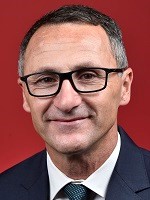
Richard Di Natale
Image source: Auspic
Watch Senator Di Natale’s valedictory speech
|
|
3
September
|
The Senate affirms its rights
On
joint motion of the Leaders of the Government and Opposition in the Senate,
the Senate adopts a resolution affirming the ‘right of the Senate to
determine its own meetings’, maintaining ‘the right of senators to attend
parliamentary proceedings whether directly or by remote participation (if
available)’, and calling on the executive of all jurisdictions to ‘have appropriate
regard to these matters in devising and implementing public health measures’.[219]
|
|
|
3
September
|
Aged Care Minister censured
The
Senate votes to censure the Minister for Aged Care and Senior Australians,
Senator Richard Colbeck (Lib., Tas), regarding the administration of the
aged care sector during the pandemic.[220]
That subject had been the focus of opposition questions at Question Time
during much of the fortnight, and was also the subject of orders for
documents, urgency motions and a motion requiring the minister to attend the
Senate to make an explanation on 27 August.[221]
|
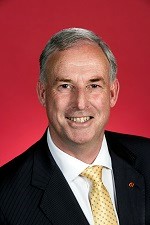
Richard Colbeck
Image Source: Auspic
|
|
3
September
|
A new inquiry into the operation and Management of the
Department of Parliamentary Services (DPS)
The
Senate refers to its Senate Finance and Public Administration Legislation
Committee a wide-ranging inquiry into DPS. The Committee is due to report on 30 June 2021.
|
|
|
4
September
|
A new Senator for Victoria
Senator
Lidia Thorpe is chosen by the Parliament of Victoria
to fill the casual vacancy created by the resignation of Richard di Natale.
She takes her seat in the Senate on 6 October 2020.[222]
A
Djabwurrung Gunnai Gunditjmara woman, Senator Thorpe had previously
represented the seat of Northcote in the Victorian Legislative Assembly
(2017-18).
Senator
Thorpe makes her first speech on 2 December 2020.[223]
|

Lidia Thorpe
Image source: Auspic
Watch Senator Thorpe’s first speech
|
|
4
September
|
Parliament House to reopen to the Public
The
Presiding Officers issue a joint statement that from 7 September 2020, Parliament House will
again be open to the public in accordance with the ACT Government’s easing of
restrictions. School visits are also able to recommence.[224]
|

|
|
4
September
|
Roundtable on the Pacific
The Joint Standing Committee on Foreign Affairs, Defence
and Trade hosts
a roundtable on Pacific trade, aid and defence, meeting with diplomatic
representatives from Kiribati, New Caledonia, New Zealand, Papua New Guinea,
Samoa, the Solomon Islands, Tonga, Vanuatu.[225]
|
|
|
6
September
|
The
Victorian Government releases its ‘roadmap for re-opening’, setting out a plan
to move from Stage 4 restrictions to ‘be at COVID Normal by the end of the year’.[226]
|
|
|
12
September
|
Death of the Hon John Fahey AC
Former
NSW Premier and Federal Minister John Fahey dies aged 75.[227]
He is farewelled in a State Funeral at St Mary’s Cathedral Sydney on 25
September 2020.[228]
First
elected to the NSW Legislative Assembly in 1984 as the Member for Camden,
John Fahey held several portfolios in the Greiner ministry before being appointed Premier in 1992. He
served as Premier until the defeat of his government in the 1995 state
election. Elected to the Federal Parliament in 1996 for the seat of
Macarthur, John Fahey served as Minister for Finance and Administration in
the Howard ministry. He retired before the 2001 general election due to
illness.
Condolence
motions are debated in both Houses when Parliament resumes on 6 October.[229] Speaking to the motion, the Prime
Minister says:
John Fahey—like, indeed, Bob
Hawke and Tim Fischer—was an Australian original. He mastered state politics,
federal politics and world sport, always grounded by a rugged faith that
understood the human condition.[230]
The
Leader of the Opposition responds:
He was one of the few to
successfully make the transition from state to federal politics. Not one to
shy away from a big task, John took on the job of finance minister. He
treated the portfolio with the respect, the gravity and the stamina that it
demands.[231]
|
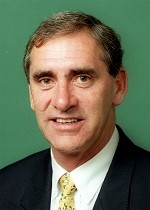
John Fahey
Image source: Parliament of
Australia
Watch the debate on the condolence motion in the House of
Representatives
|
|
14
September
|
Arrangements for Budget week
The
Presiding Officers determine that restrictions on access and activities put
in place for the August sittings will be again in place for the Budget
sittings, including the closure of the building to the public.[232]
|
|
|
18
September
|
Resignation of John McVeigh, member for Groom (Qld)
Former
Minister for Regional Development, Territories and Local Government John McVeigh (LNP) announces his immediate resignation from the House of
Representatives.[233]
First
elected to the Australian Parliament in 2016, Dr McVeigh had previously
served in the Queensland Legislative Assembly (representing Toowoomba South)
and on the Toowoomba Regional Council.
He
is the second generation of his family to be elected member for Groom. His
father Daniel McVeigh was a member of the House of
Representatives representing Darling Downs/Groom (following a redistribution)
from 1972 to 1988.
On
26 October, the Speaker of the House of Representatives, Tony Smith, issues
the writ for the Groom by-election to be held on 28 November 2020.[234]
|

John McVeigh
Image source: Auspic
|
|
18
September
|
40th anniversary of the Turning of the Sod ceremony
This
day is forty years since the Turning of the Sod Ceremony marked the
official commencement of the construction of the ‘new’ Australian Parliament
House. In his speech on that day, Prime Minister Malcolm Fraser said:
… as the nation grew, and with
the Parliament and the demands upon the Parliament, it became increasingly
clear that a new building would, in time, be required.[235]
|
Read:
Prime
Minister Malcolm Fraser’s speech
|
|
27
September
|
Death of the Hon Susan Ryan AO
Former
federal minister and inaugural Age Discrimination Commissioner, Susan Ryan dies aged 77.
Susan
Ryan served as Member for Fraser in the 18 member ACT House of Assembly in 1974–5. Campaigning under the slogan
‘a woman’s place is in the Senate’, she was elected in 1975 to one of the two
newly established ACT senate seats.[236]
She remained in the Senate until her retirement in 1988.
Ryan
became the first woman to serve in a federal Labour cabinet when she was
appointed to the Hawke ministry in 1983 as Minister for Education and Youth Affairs
and Minister Assisting the Prime Minister for the Status of Women. She was ‘pivotal
in the passage of the Sex Discrimination Act and Equal Employment Opportunity
and the Affirmative Action Act.’[237]
Condolence
motions are debated in both Houses when Parliament resumes for its October
sittings.[238]
Speaking on the condolence motion in the Senate, Minister Mathias Cormann commends Ryan’s ‘extensive legacy of firsts’, her signature
achievement [being] the passage of the Sex Discrimination Act 1984’.[239] Senator Penny Wong (ALP SA) says:
It is often said ‘you cannot be
what you cannot see’, and yet someone has to go first. Those are the truest
of leaders, who have the vision of what is possible, the courage to take on
the fight against those vested in the status quo, the intellectual power to
craft the strategy and the charisma and humanity to bring people with them.
For us, for Labor women, that was Susan Ryan. She could see it: she could see
a woman at the cabinet table, and she could see what Australia needed, what
Australia needed that woman to achieve, and she made it happen.[240]
Susan
Ryan receives a state funeral on 23 October at St Mary’s Cathedral,
Sydney.[241]
|
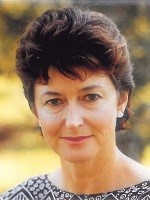
Susan Ryan
Image source: Parliamentary
Handbook
|
|
30
September
|
Upgraded catering facilities open
As
part of a broader upgrade of Parliament House kitchens and hospitality areas,
the refurbished Staff Dining Room and kitchen opens. During the course of
2020 the main production kitchen, schools and hospitality area, Great Hall
kitchen and bar, Queens Terrace Café and Members and Guests Dining Room and kitchens
also undergo refurbishment.[242]
|
|
|
2–3
October
|
Floriade Reimagined
In
2020, Canberra’s annual floral festival, Floriade, is reimagined, moving from
its traditional home of Commonwealth Park to bloom across Canberra, including
at Parliament House. As part of Floriade Reimagined, Parliament House hosts a
NightFest degustation dinner, a spring tea and spring garden tours.[243]
|

Image source: John O’Neill, Wikimedia
Commons
|
|
6
October
|
Parliament resumes to debate the Federal Budget
Parliament
resumes for its Budget sittings. As in August, senators and members unable to
be physically attend Parliament because of COVID-19 are able to participate
via video link.
Due
to social distancing requirements, only 80 seats are available in the House
of Representatives when Treasurer Josh Frydenberg delivers his Budget speech.[244]
Senators watch from the galleries. Before updating the House about the state
of the economy and the Government’s major policy measures, he states:
In
2020, Australians have been tested like never before.
Flood,
fires, drought, and a global pandemic.
So many
Australians, through no fault of their own, are doing it tough.
Lives
have been lost.
Businesses
have closed.
Jobs
have gone.
Our
cherished way of life has been put on hold.
Our
local heroes, the healthcare workers on the front-line, just as the volunteer
firefighters did over summer, are showing us the way. Their courage,
commitment, and compassion show the very best of Australia.
Tonight,
a grateful nation gives thanks.
These
qualities are the invisible strength of Australia.
We are
a resilient people, a proud nation and we will get through this together.
The
Great Depression and two World Wars did not bring Australia to its knees, and
neither will COVID-19.[245]
Analysis of the
major measures can be found in the Parliamentary Library’s Budget
Review 2020–21 and the Parliamentary Budget Office’s Budget
snapshots.
|

Treasurer Josh Frydenberg hands Appropriation Bill no. 1
to the Clerk of the House of Representatives.
Image source: Auspic
|
|
8
October
|
COVID-19 and the Senate
The
Senate Procedure Committee tables its second report for 2020, COVID-19 and the Senate.[246]
|
|
|
8
October
|
The Speech in Reply to the Budget
Opposition
Leader Anthony Albanese presents the traditional speech in reply to the Budget
in the House of Representatives.[247]
His speech sets out his party’s views on the Budget bills
and outlines the alternate measures that would be introduced under a Labour
government. He states:
[T]he challenge—and the
opportunity—facing us now is not just a matter of getting things back to the
way they were; we have to aim higher than that, strive for so much more than
that. We have a once-in-a-generation chance to rebuild our economy and our
country for the better, to launch a recovery that delivers a stronger, fairer
and more secure future for all Australians.[248]
|

Anthony Albanese
Image source: Auspic
|
|
10
October
|
E-petition on the Australian news media
Former
Prime Minister Kevin Rudd launches an e-petition calling for a Royal Commission ‘to ensure
a strong, diverse news media’.[249]
By
the time it closes on 4 November, the petition has received 501,876 signatures,[250]
making it the largest e-petition, though not the Parliament’s largest
petition. (The record was set in 2014 when a petition on funding for
community pharmacies attracted over 1,210,000 signatures.)[251]
The
petition is presented to the House of Representatives on 9 November by the
Member for Fenner, Dr Andrew Leigh (ALP, ACT).[252] On 11 November, the Senate refers to its Environment and Communications References Committee an Inquiry into Media Diversity in Australia. The reporting date is 4 August 2021.[253]
|
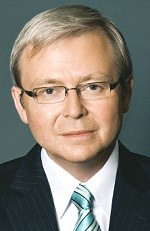
Kevin Rudd
Image source: Auspic
Watch
the petition being presented to Parliament
|
|
15
October
|
Presiding Officers’ Statement regarding access arrangements for
the October sittings
Following
consultations between Presiding Officers and relevant health authorities, the
Presiding Officers issue a statement regarding the operations of Parliament
House during the October sittings. Parliament House will again close to the
public and for events, with access restrictions also in place for certain
groups of passholders. Parliamentarians’ staff are asked not to travel to
Canberra unless it is ‘absolutely essential’. Mask wearing is ‘strongly
recommended’ in circulation areas. Special access and cleaning
arrangements are to be implemented for Senate Estimates.[254]
|
|
|
19
October
|
Statement on the condition of Parliament House
The
Speaker presents to the House of Representatives a statement regarding the condition of Parliament
House.[255] It is the sixth such statement
issued in fulfillment of a recommendation by the Senate Finance and Public Administration Legislation
Committee in its
Report on the performance of the Department of
Parliamentary Services (2012).
|
|
|
23
October
|
A new Parliamentary Budget Officer
The
Presiding officers announce the appointment of Dr Stein Helgeby as the new Parliamentary Budget
Officer.[256]
|
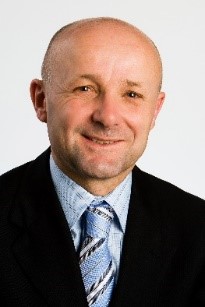
Stein Helgeby
Image source: Auspic
|
|
27
October
|
Motion
On the motion of
the Opposition Leader Anthony
Albanese, the House of Representatives commends the people of Victoria on their achievements in
overcoming the second wave of COVID-19.[257]
The motion is seconded by the Deputy Leader of the Opposition, and the Prime
Minister and the Treasurer speak in support.
|
Watch the debate on
the motion
|
|
28
October
|
National memorial service
The
Prime Minister and Leader of the Opposition make statements on indulgence regarding the National Memorial Service
for Fire and Emergency Service Workers.[258]
Due to the pandemic, the Australasian Fire and Emergency Services Authorities
Council live-streams its annual service.
|
|
|
3
November
|
Presiding Officers’ Statement regarding ongoing APH access
The
Presiding Officers issue a joint statement regarding access arrangements for Parliament
House to apply for sitting and non-sitting weeks.
The
building is again open to the public in accordance with the ACT Government’s
COVID-19 restrictions; access to the public galleries is reinstated (with
limited numbers), and events and school visits are able to re-commence.[259]
The
changes to ACT Government restrictions enabled greater attendance by
parliamentarians during the 9–12 November sittings; no contributions will be
made via video link in the House of Representatives.[260] Over 130 members and 68 Senators
attend in person over the sitting fortnight.[261]
|
|
|
9
November
|
25th anniversary of the assassination of Yitzhak Rabin
The
House of Representatives debates a motion in the House of Representatives noting that 4 November marked
25 years since Israeli Prime Minister Yitzhak Rabin was assassinated at an
anti-violence rally.[262]
A similar motion is passed in the Senate on 3 December.[263]
|
|
|
9
and 10 November
|
Statement on indulgence
On
9 November the Prime Minister and the Leader of the Opposition make
statements on indulgence on the US Presidential election, congratulating
President-elect Joe Biden and Vice President-elect Kamala Harris.[264]
On
10 November, Darren Chester, Minister for Veterans Affairs, makes the fourth
annual statement on Veterans and their Families.[265] Opposition Spokesman Shane Neumann (Blair, Qld) speaks in response, and debate is then referred to the Federation Chamber.[266]
|
Watch
the statements on indulgence on the US election
Watch
the ministerial statement and response on veterans and their families.
|
|
10
November
|
Senate rejects motion to display the Aboriginal and Torres
Strait Islander flags
The
Senate rejects a motion, moved by Senators Anne Urquhart (ALP, Tas.), Patrick Dodson (ALP, WA) and Lidia Thorpe, to display
the Aboriginal and Torres Strait Islander Flags in the Senate chamber alongside
the Australian flag.
|
|
|
11
November
|
Remembrance Day
A
short, ticketed ceremony is held in the Great Hall at Parliament House to
mark Remembrance Day.
|

Image source: Auspic
|
|
11
November
|
45th anniversary of the dismissal of the Whitlam Government
This
date marks 45 years since the 1975 dismissal of the Whitlam Government by
Governor-General Sir John Kerr, one of the most dramatic events in Australian
political history. The July 2020 release of correspondence between Governor‑General
Kerr and Buckingham Palace, known as the Palace Letters, provided fresh insight into this
controversial period.[267]
|
Read:
Parliamentary Library FlagPost
|
|
12
November
|
Centenary of the expulsion of Hugh Mahon
Tony
Burke, on indulgence, makes a statement marking the 100th anniversary of the expulsion the
member for Kalgoorlie Hugh Mahon from the House of Representatives for ‘seditious and
disloyal utterances’.[268]
Mahon’s seat was declared vacant and he was defeated at the by-election by George James Foley.
This
was the only occasion on which either House of the Commonwealth
Parliament expelled one of its members. However, it was not until the enactment
of the Parliamentary Privileges Act 1987 that the Houses lost their power to do
so.[269]
|
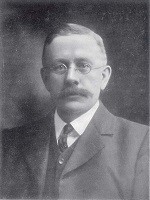
Hugh Mahon
Image source: Parliamentary
Handbook
|
|
15
November
|
Death of former minister Chris Hurford
Former
Minister Chris Hurford AO dies. Chris Hurford (ALP, Adelaide,
SA) served as a Minister from 1983 to 1987, as Minister Assisting the
Treasurer and in the Housing and Construction, Immigration and Ethnic
Affairs, and Community Services portfolios.
Condolence
motions are debated in the House of Representatives and the Senate on 17 March 2021, enabling many of Mr Hurford’s family
members to attend.[270]
|
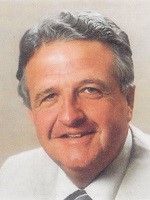
Chris Hurford
Image source: Auspic
|
|
16-21
November
|
South
Australia implements restrictions and lockdowns following a small outbreak of
cases in Adelaide. Queensland, Victoria and Western Australia close their
borders to SA.
|
|
|
19
November
|
Death of Dame Margaret Guilfoyle
The
Liberal Party announces the death of Dame Margaret Guilfoyle at the age of 94.[271]
Dame
Margaret (Lib.) represented Victoria in the Senate between 1971 and 1987,
retiring prior to the General Election that year.
She
was the first woman to hold a federal Cabinet portfolio,[272] and became the first woman to
hold a major economic ministry when appointed Minister for Finance by Prime
Minister Malcom Fraser. Not until 2010 would another woman, Senator Penny Wong, be appointed to that office.
As
Minister for Social Security, Dame Margaret oversaw significant reforms to
child endowment/family allowance and childcare.
Speaking
on the condolence motion in the Senate, Minister for Finance Simon Birmingham
described Dame Margaret as a woman who ‘had made an extraordinary
and leading contribution to shape the modern Australia that we live in
today’.[273]
Senator Wong remarked:
Dame Margaret recognised the role she
played as one of the first few women to enter this place and then to hold
significant office. But to her the more significant matter was that she would
ensure that it was more acceptable in the future for positions of
responsibility to be handled by women. In her valedictory remarks several
years later she said:
‘It was said that
I was the first to hold a Cabinet post and administer a
department—that might be true—but it had to be very important that I
was not the last.’[274]
|

The Hon
Dame Margaret Guilfoyle, AC DBE
Image source: Auspic
|
|
26
November
|
COVID-19 Statement by the Presiding
Officers
Speaker Tony Smith and President Scott
Ryan issue a statement regarding ongoing access to Parliament House ahead
of the final sitting weeks.[275]
|

|
|
28
November
|
Groom by-election
Triggered
by the resignation of former Minister John McVeigh, the by-election for the
Queensland regional seat of Groom is held on 28 November. As was the case
with the Eden-Monaro by-election, COVID-19 related safety measures are put in
place for voters, AEC staff and other participants.[276]
The
seat is comfortably won by LNP candidate Garth Hamilton with 67.19 per cent of the vote (two candidate preferred).[277]
The
new member is sworn into the House of Representatives on 3 December 2020.[278]
|
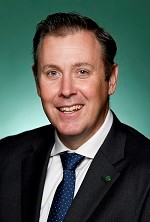
Garth Hamilton
Image source: Auspic
|
|
30
November
|
Prime Minister attends Parliament via video link
The
Government and Opposition agree changes to the ‘Agreement for Members to
Contribute Remotely to Parliamentary Proceedings’ to enable Prime Minister Morrison
to attend remotely from The Lodge.[279]
The Prime Minister is in quarantine in his official residence following an
official visit to Japan.
|

Image source: Auspic
|
|
30
November
|
A new senator for Western Australia
Senator
Benjamin Small (Lib.) takes his seat in the Senate.
Senator
Small was chosen by the Parliament of Western Australia to fill the casual
vacancy caused by the resignation of Senator Mathias Cormann on 6 November.
|

Benjamin Small
Image source: Auspic
|
|
2
December
|
New web resource: Senate committee system
The
Department of the Senate launches two new web resources to celebrate the 50th
anniversary of the Senate’s committee system.
Navigate Senate Committees provides a timeline of
developments in the committee system since 1901 and charts the genealogy and
history of individual committees since that time.
The Senate committees hearing map illustrates the work of committees
conducting hearings across the country—over 7,500 hearings are mapped by year
and subject.
|
Watch the launch of ‘Senate Committees celebrating 50 years’.
|
|
2
December
|
Sir Edmund Barton: Australia’s first Prime Minister
The
Presiding Officers launch a new exhibition at Parliament House celebrating the
life and times of Sir Edmund Barton, Australia’s first Prime Minister.
The
exhibition includes a rarely displayed photographic portrait of each
individual member of the first Commonwealth Parliament. Other key items
associated with Sir Edmund Barton have been loaned to Australian Parliament
House from a range of institutions.
The
launch is followed by a Parliamentary Library lecture on Barton by Dr David Headon.
The
exhibition will run until February 2021.
|
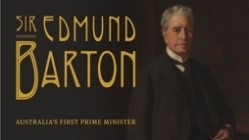
Image
source: Norman Carter (1875-1963) The Rt Hon. Sir Edmund Barton GCMG
KC (detail), 1913, Historic Memorials Collection, Parliament House
Art Collection, Department of Parliamentary Services, Canberra, ACT
|
|
2
December
|
Christmas Giving Tree
The
Presiding Officers light the Parliament’s Giving Tree which is placed in the
public foyer every Christmas to raise money for charity.
|
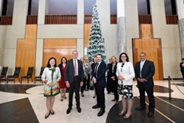
Image source: Auspic
|
|
7
December
|
The House must go on!
Chair
of the House of Representatives Standing Committee on Procedure Ross Vasta (LNP, Bonner, Qld) presents the Report of the inquiry into the practices and procedures put in place by
the House in response to the COVID-19 pandemic.[280]
|
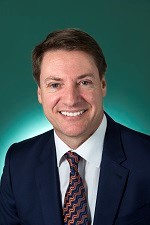
Ross Vasta
Image
source: Auspic
|
|
8
December
|
George Reid, Australia’s fourth Prime Minister
Senate
President Scott Ryan launches the Parliamentary Library’s book on George Reid written by Canberra historian Dr David
Headon.[281]
Scottish
born George Reid holds a unique position among Australian political
leaders, having been a representative in colonial,
Commonwealth and British legislatures.[282]
The
work is part of the First Eight project on Australia’s early Prime Ministers.
|

Dr David Headon, Senate President Scott Ryan and DPS
Secretary Rob Stefanic at the launch
Image
source: Auspic
|
|
9
December
|
ACT and NT changes to parliamentary representation
The
Electoral Amendment (Territory Representation) Bill passes the Parliament.
The bill changes the method for determining the number of
seats in the
House of Representatives for the ACT and NT, setting aside the Electoral
Commissioner’s July determination and restoring the NT’s second seat.[283] While similar in purpose to the private bill introduced by NT Senator Malarndirri
McCarthy, the Government’s bill reflects the deliberations
of the Joint
Standing Committee on Electoral Matters’
inquiry.[284]
The Bill
receives royal assent on 15 December.
|
|
|
10
December
|
Member for Lingiari to retire
The
Member for Lingiari Warren Snowdon (ALP, NT) announces his retirement from politics at the next general
election.[285]
First
elected to the House of Representatives for the Northern Territory in 1987,
Mr Snowdon held the seat until his defeat at the 1996 general elections. He
was returned to the House of Representatives as the member for Lingiari in
2001 and returned at each subsequent election. He served in the Hawke,
Keating, Rudd and Gillard ministries.
|
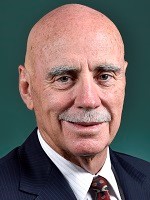
Warren Snowdon
Image source: Auspic
|
|
18
December
|
Ministerial reshuffle
Prime
Minister Morrison announces changes to his ministry, consequent upon the retirement
of Matthias Cormann.[286]
Dan Tehan (Lib., Wannon, Vic) is appointed Minister for Trade,
Tourism and Investment. Aged care is elevated to Cabinet with Greg Hunt
(previously Minister for Health) appointed Minister for Health and Aged Care.
Minister Hunt is given responsibility for the Government’s response to the Royal Commission into Aged Care Quality and Safety.
Other
changes include the appointment of Alan Tudge (Lib., Aston, Vic) as Minister for Education and Youth
and Alex Hawke (Lib., Mitchell, NSW) as Minister for Immigration,
Citizenship, Migrant Services and Multicultural Affairs. Former immigration
minister David Coleman (Lib., Banks, NSW) becomes Assistant
Minister for the Prime Minister for mental health and suicide prevention. Andrew Hastie (Lib., Canning, WA) and Amanda Stoker (Lib.,
Qld) are appointed to
assistant minister roles in the Defence and Attorney-General portfolios.
The
new Ministry is sworn in on 22 December. For the first time the ceremony is
conducted via video-conference due to COVID-19 related travel restrictions.[287]
|
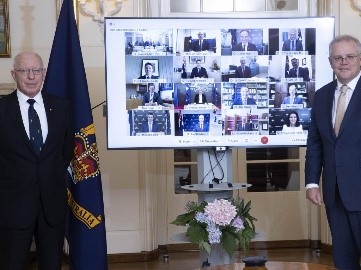
Scott Morrison and Governor-General David Hurley pose
alongside the new cabinet, which appeared via video link. Image: NCA
NewsWire/Gary Ramage
Read the updated
Ministry List
|
|
18
December
|
Death of Major General the Hon Michael Jeffery AC, AO (Mil),
CVO, MC
Australia’s
24th Governor General, Michael Jeffery, dies aged 83. Current Governor-General David Hurley issues a statement describing him as, ‘by every measure, a great
Australian’.[288]
General
Jeffery was sworn in as Governor-General in August 2003, having previously
served as Governor of Western Australia (1993-2000).
General
Jefferey had previously had a distinguished military career (1953–1992),
retiring as Assistant Chief of the General Staff for Materiel.
General
Jeffery is farewelled at a state
funeral in
Canberra on 29 December 2020.[289]
|

Major General the Hon Michael Jeffery AC, AO (Mil),
CVO, MC
Image source: Auspic
|
|
19
December
|
The
NSW Government introduces new restrictions and border controls for the Northern Beaches, and progressively extends these to the
greater Sydney region as COVID-19 clusters emerge in January. Other
jurisdictions re-introduce travel restrictions for people in the affected
areas.[290]
|
|
|
20
December
|
Death of the Right Honourable John Douglas (Doug) Anthony AC, CH
Former
Deputy Prime Minister and Leader of the Federal Parliamentary Country
Party/National Party, Doug Anthony, dies aged 90.
Doug
Anthony was first elected to the House of Representatives as member for
Richmond in 1957, winning the seat in a by-election following the sudden
death of his father, Hubert Anthony, the sitting member. In 1996, his son, Larry Anthony, would become the third generation of
the family to represent this seat in the federal Parliament.
Doug
Anthony held the seat of Richmond until his retirement from the Parliament in
1984, serving in the Menzies, Holt, McEwen, Gorton, McMahon and Fraser ministries.
In
a statement upon Anthony’s death, Nationals Leader Michael McCormack paid tribute to his achievements, particularly his
commitment to country Australia, and his achievements in expanding trade,
particularly with Japan and China, and noted:
He was a
man of decency, integrity, purpose and resolve. Tales of him in the capacity
of Acting Prime Minister and leading the country from his caravan on the New
South Wales North Coast make up the political fabric of our party and our
nation.[291]
|
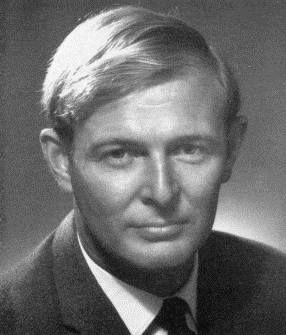
Doug
Anthony
Image source:
Auspic
|
|
23
December
|
Parliamentary Handbook published online
The
Parliamentary Library publishes The 46th Parliament: Parliamentary Handbook of the
Commonwealth of Australia online. The hard copy version follows soon afterwards. The
Parliamentary Handbook provides detailed information about the Parliament,
including the parliamentary service and political careers of Senators and
Members, details of elections, and historical information.
|
|
|
31
December
|
COVID-19 Tally
Due
to the outbreak of COVID-19 cases in NSW, Victoria and SA close their borders
with that state, Western Australia closes its border to both Victoria and
NSW.
As
at 3 pm on 31 December, Australia has recorded of 28,408 COVID-19 cases, 909
deaths, and 217 active cases. Seventy-eight percent of cases are locally
acquired.[292]
As
of 27 December, the World Health Organisation reports 79,231,893 COVID-19
cases and 1,754,574 deaths have been reported globally.[293]
|
|